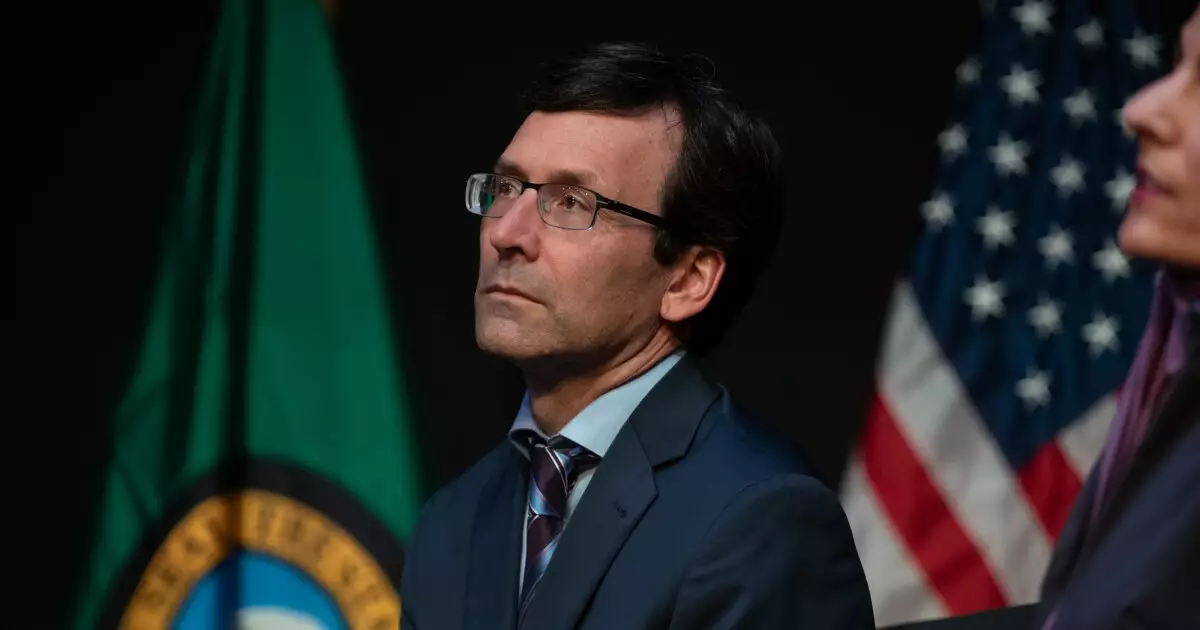The recent interplay between Washington state’s legislature and Governor Bob Ferguson exposed a significant fracture in fiscal policy and judgment. Initially, the celebration around the House and Senate’s passing of their respective budget plans seemed promising. Yet, the elation was abruptly cut short when Ferguson, with unwavering resolve, dismissed both proposals as fundamentally flawed. His determination is commendable; it signals a leader who prioritizes sustainable financial health over political gains. However, the alarming reality of Washington state’s financial predicament cannot be overstated.
Ferguson’s objections centered on an over-reliance on taxation, particularly concerning the contentious “wealth tax.” This novel approach undoubtedly invites a host of legal challenges that could inhibit any immediate financial stability. An untested revenue source, especially one tagged for potential legal battles, hardly seems like a prudent path to fiscal solvency. In an era where accountability and resilience should guide our decisions, the governor’s call for radical reassessment should serve as a wake-up call.
A Tumbling Revenue Stream
The stats are staggering: a projected $16 billion deficit over the next four years is not merely a figure—it’s a precursor of a potential fiscal catastrophe. This staggering number stems from reduced revenue projections and shrinking federal funding. What’s more disconcerting is Ferguson’s assertion that 28% of the state’s budget relies on these federal dollars, which come with increasing volatility and uncertainty. The federal government cannot be counted on for stability, and recognizing that truth is critical for responsible governance.
His acknowledgment of looming federal cuts is equally sobering. Washington has built its budgetary support on shaky ground, and the reality of federal funding drying up has gone unaddressed for too long. As Ferguson noted, “This is a five-alarm fire,” and it’s high time that lawmakers respond with decisive action rather than shortsighted palliatives that risk undermining the overall fiscal integrity of the state.
Reserves: The Uncanny Lifebuoy
The very notion of preserving Washington’s rainy-day fund strikes me as not just wise, but imperative. Ferguson identifies it as a buffer against economic shocks and potential fiscal upheaval. In a world where unexpected events come as a given, draining these reserves to fund more expansive budgetary plans would indeed cripple our capacity to tackle future crises.
Furthermore, protecting our bond ratings should be of paramount concern. Low borrowing costs are essential for developing infrastructure that serves communities and supports economic growth. As Ferguson astutely points out, the state’s Aaa rating from Moody’s and other agencies translates to significant long-term savings. Optimizing financial resources must remain a priority for lawmakers who wish to hold the state’s fiscal future in their capable hands.
A Core Responsibility to Educate
Emerging from the budgetary chaos is the indisputable need to focus on education funding. K-12 education lays the foundation not just for individual success, but for the collective growth of society. Limiting new investments while ensuring that core services receive the prioritization they need is not merely a budgetary necessity; it’s a moral obligation. We owe it to the next generation to equip them with the tools for success, not just a fractured educational system held together with inadequate funding.
As Ferguson emphasized, sustaining essential services should not become a casualty of misguided fiscal maneuvers. It’s crucial to mitigate the adverse effects that budget cuts could have on education and services for vulnerable populations.
Ferguson’s call to arms for responsible budgeting should resonate not just with policymakers in Washington, but with citizens who demand a government that operates within its means. It is easy to propose lavish spending initiatives when one does not account for the long-term implications. Each decision made in the next few months will shape the financial landscape of Washington for years to come.
Amidst the noise of budget debates, let’s champion thoughtful, center-right approaches that prioritize fiscal responsibility. With a proactive stance, clear leadership, and responsible financial planning, Washington can indeed weather this storm without capitulating to harmful taxes or unsustainable budgets. Let us hope the lessons learned today will shape a better tomorrow for the state.

